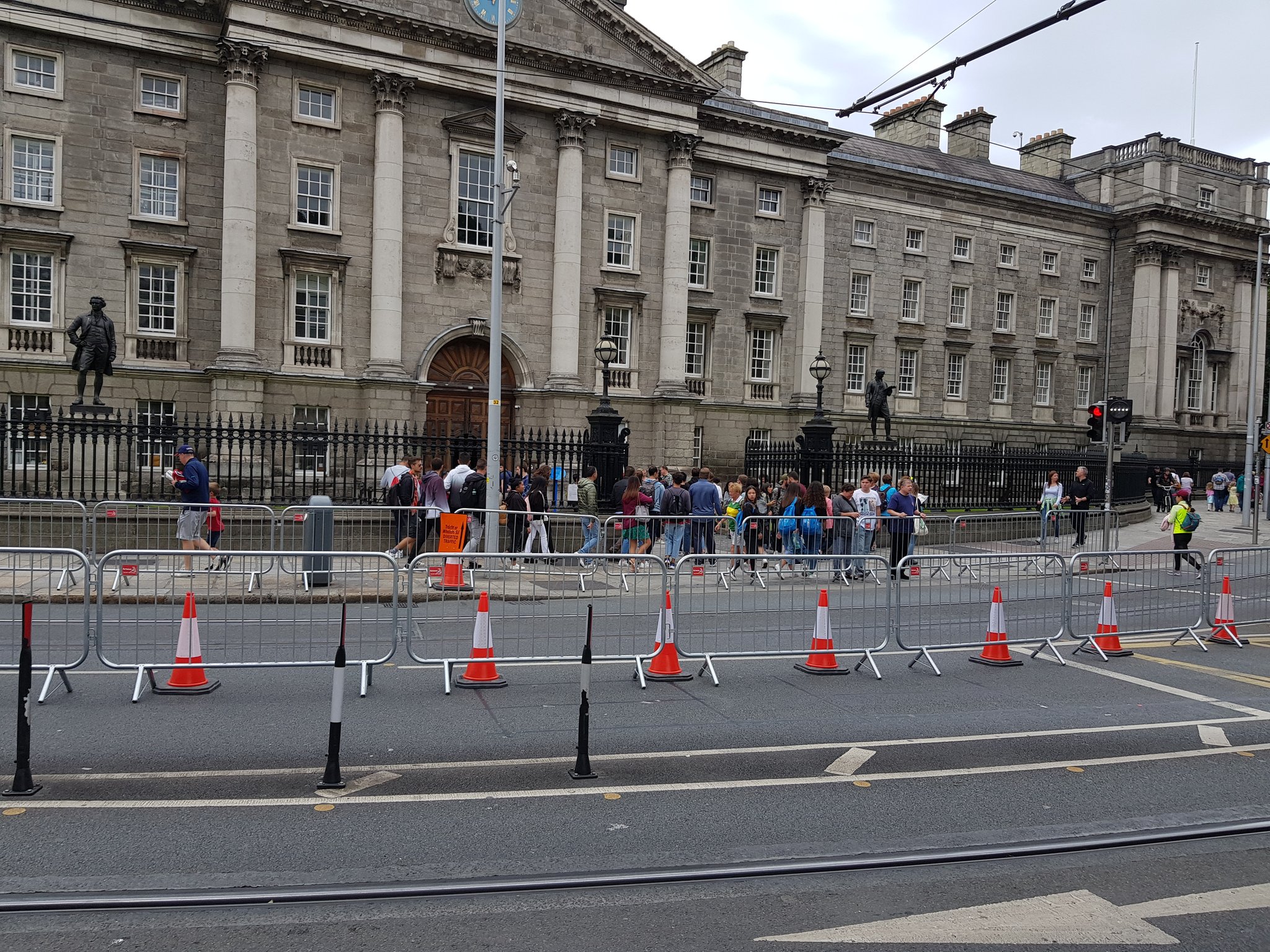The trial of a pedestrian-only area on College Green held in September saw air pollution double in parts of Dublin, according to reports shared in a Dublin City Council (DCC) debriefing.
Cars and taxis were not permitted into the area, and more than 20 bus routes were rerouted to avoid the pedestrian zone. Air quality was measured for 11 days around the event, with testing sites on Lord Edward Street, Trinity, and College Green itself. The College Green’s monitor malfunctioned on the 22nd.
The increase in traffic on Lord Edward Street due to the diverted buses led to twice as much pollution, whereas pollution monitors in Trinity registered an increase of 50%. This was a ‘surprising result’ according to the DCC since “the fact that it was wet on the day should have resulted in reduced pollution”.
The pedestrian zone had been organised as a part of European Mobility Week, to support petrol free transport around Europe. The council had also trialled a traffic ban in the area for 3 consecutive Sundays last summer, on the 21st of July, 28th of July and the 4th of August.
DCC has been planning the implementation of a permanent pedestrian zone in College Green since 2015, claiming it to be a “landmark” opportunity. However, An Bord Pleanála, the national planning appeals board, rejected the proposal last October because of the inconvenience posed to bus routes and city traffic. Dublin Bus released a statement in which they referred to the plans as “socially regressive”.
It is understood that DCC do not intend to run any further traffic-free trials on College Green
DCC organised a variety of family events at the location on the day of the event in September, in order to draw in pedestrians and highlight the utility of the public space. Around 21,000 people are thought to have attended.
The implementation was criticized by many attendees because of poor organisation. Pedestrians cited an excess of barriers around the area as a hindrance to accessing the space. Minutes confirmed that “the number of barriers installed at the start of the event deterred people from entering the event zone. Removal of these resulted in greater participation and did not cause a safety concern for the event management company”. In addition, unforeseen activity in the area “result[ed] in staff having to move the [bicycle] stands on request of the event manager. Clearer communication required for future events.”
This was also an issue during the summer trials, with Green Party councillor Neasa Hourigan expressing her disappointment that there were “security guards, thousands of metal barriers, pedestrians being refused access to the space and no cycle parking”.
The minutes in the debriefing acknowledged that “DCC has no immediate plans to deliver more events in the area.”






